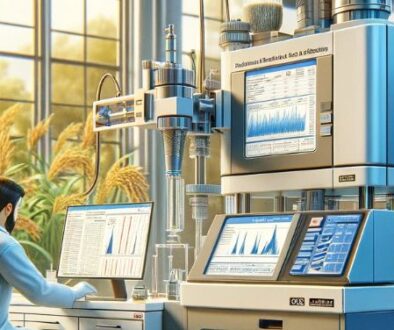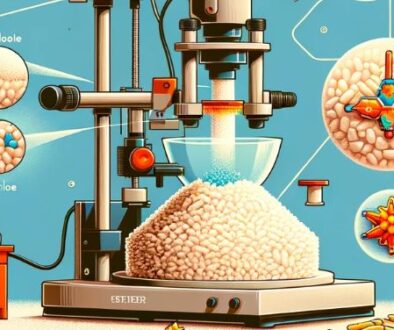Mycelial Culture Of Wild Fibroporus Parasitic On Jujube Trees And Its Fruiting Body Rice Cultivation Conditions
Exploring the optimized cultivation of Inonotus hispidus using rice, enhancing bioconversion rates and reducing production cycles for medicinal fungus research.
Inonotus hispidus is a rare medicinal fungus, and wild resources are very scarce. At present, the technology for artificial cultivation of Inonotus hispidus is not yet mature. In order to improve the bioconversion rate of Inonotus hispidus cultivation and shorten the production cycle, first of all, The culture conditions of the hyphae of collected wild Mycelium hirsutum were analyzed, and then the method of cultivating Mycelium hirsutum using rice was further explored. In the process of analyzing the culture conditions of mycelium, the mycelial growth rate was used as an indicator to screen strains suitable for mycelial growth. Temperature, pH, carbon source and nitrogen source; in the process of research on fruiting body cultivation, the cultivation medium suitable for the growth of the fruiting body of the strain was screened based on the biological transformation rate index. The results of the screening of mycelial growth culture conditions showed that the growth of parasitic jujube trees The optimal culture conditions for the hyphae growth of wild Fibroporus immitis are temperature 25¡ãC, initial pH 6.0, carbon source glucose, and nitrogen source yeast extract powder. The domestication cultivation results show that Fibroporus immitis grows in a culture medium with rice as the main substrate. The biological conversion rate is relatively high. The optimal cultivation conditions after optimization are 0.2% yeast extract powder content in the nutrient solution, 1:1.6 material-to-liquid ratio of rice and nutrient solution, and 4 mL liquid strain inoculum. Under these conditions, It takes about 4 days for mycelium to fill the cultivation medium, and about 20 days for the primordia to differentiate into fruiting bodies. The biotransformation rate can reach 28.70% ¡À 5.05%. The results of this study show that it is feasible to use rice as the main substrate to cultivate coarse hairy pores. , and can also provide ideas for finding new cultivation substrates for other rare medicinal fungi. (Figure 7 Table 6 Reference 25
Study Objective: Enhancing Bioconversion Rates and Cycle Reduction
Inonotus hispidus, a rare medicinal fungus, holds significant potential in the field of biomedicine due to its scarce wild resources. The urgency to harness its benefits has led to explorations in artificial cultivation methods. However, challenges persist, primarily due to the immature technology surrounding its cultivation. This paper delineates a novel approach aimed at enhancing the bioconversion rates of Inonotus hispidus cultivation and reducing the production cycle.
Methodology: Analyzing Culture Conditions and Utilizing Rice Substrate
Our initial step involved analyzing the culture conditions of hyphae from collected wild Mycelium hirsutum. Subsequently, we delved into the methodology of utilizing rice as a substrate for cultivating Mycelium hirsutum. By adopting the mycelial growth rate as a pivotal indicator, our study screened strains conducive to mycelial proliferation, focusing on critical variables such as temperature, pH, carbon source, and nitrogen source. Parallelly, our research on fruiting body cultivation entailed the identification of a cultivation medium that optimally supports the growth of the fruiting body, guided by the biological transformation rate index.
Results: Optimal Conditions for Mycelial Growth and Fruiting Body Cultivation
The findings from the screening of mycelial growth culture conditions pinpointed the optimal environmental factors for the proliferation of Fibroporus immitis hyphae on parasitic jujube trees. The conditions identified were a temperature of 25°C, an initial pH of 6.0, glucose as the carbon source, and yeast extract powder as the nitrogen source. Furthermore, the cultivation of Fibroporus immitis on a rice-based medium showcased a commendably high biological conversion rate. The optimized cultivation conditions were determined to be a 0.2% yeast extract powder content in the nutrient solution, a material-to-liquid ratio of rice to nutrient solution at 1:1.6, and a 4 mL liquid strain inoculum. Under these parameters, the mycelium took approximately 4 days to colonize the cultivation medium fully, while the differentiation of primordia into fruiting bodies occurred over about 20 days, achieving a biotransformation rate of 28.70% ± 5.05%.
Conclusion: Implications for Medicinal Fungus Cultivation and Research
These outcomes not only affirm the feasibility of using rice as a primary substrate for the cultivation of coarse hairy pores but also pave the way for the identification of novel cultivation substrates for other rare medicinal fungi. The significant reduction in the production cycle and the enhancement of the bioconversion rate through this study could mark a pivotal advancement in the cultivation of Inonotus hispidus, thereby contributing to its accessibility and potential application in medicinal research. This exploration opens new avenues for the sustainable cultivation of medicinal fungi, ensuring their preservation and utilization for future generations. Through the detailed analysis and empirical evidence presented, this research contributes valuable insights into the field of fungal biotechnology, offering a scalable solution to the challenges faced in the cultivation of rare medicinal fungi.
For futher details of this article and research, feel free to contact our team for assistance.
Original research was done by 10.19675/j.cnki.1006-687x.2018.07045
About ETprotein:
ETprotein, a reputable plant protein vegan protein Chinese factory manufacturer and supplier, is renowned for producing, stocking, exporting, and delivering the highest quality organic bulk vegan protein and plant proteins. They include Organic rice protein, clear rice protein, pea protein, clear pea protein, oat protein, watermelon seed protein, pumpkin seed protein, sunflower seed protein, mung bean protein, peanut protein, various of plant peptides etc. Their offerings, characterized by a neutral taste, non-GMO, allergen-free attributes, cater to a diverse range of industries. They serve nutraceutical, pharmaceutical, cosmeceutical, veterinary, as well as food and beverage finished product distributors, traders, and manufacturers across Europe, USA, Canada, Australia, Thailand, Japan, Korea, Brazil, and Chile, among others.
ETprotein specialization includes exporting and delivering tailor-made protein powder and finished nutritional supplements. Their extensive product range covers sectors like Food and Beverage, Sports Nutrition, Weight Management, Dietary Supplements, Health and Wellness Products, and Infant Formula, ensuring comprehensive solutions to meet all your protein needs.
As a trusted company by leading global food and beverage brands and Fortune 500 companies, ETprotein reinforces China’s reputation in the global arena. For more information or to get a free sample of their protein products, please contact them and email sales(at)ETprotein.com today.












